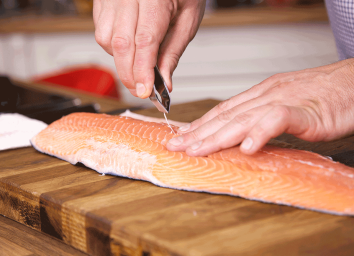What Happens to Your Body When You Eat Farmed Salmon
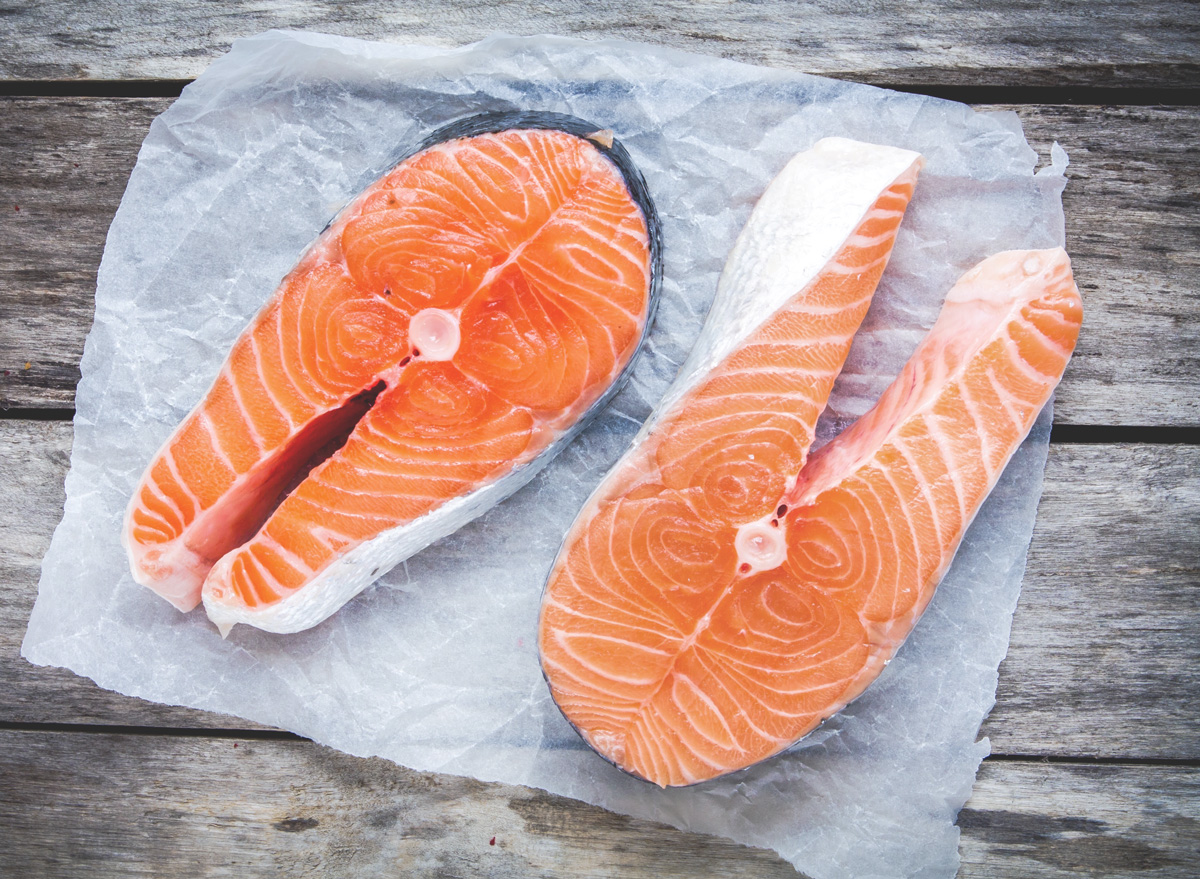
Fish is, by all accounts, a miracle food. A great source of lean protein and other vital nutrients, it’s often highlighted as the “health-conscious” alternative on restaurant menus. A flaky pink salmon, especially, is the go-to “lighter fare.” But before you order that filet, consider—where did the fish come from? And, maybe more importantly, does it matter? In short: yes and no. Salmon can either be farmed or wild-caught, and there is a debate between experts in the nutrition community about which method is superior—and what happens to your body when you eat farmed salmon.
“Both farmed and wild salmon have been shown to accumulate a variety of toxic pollutants,” says Dr. Rashmi Byakodi, a health and wellness writer and the editor of Best for Nutrition. She notes, however, that farmed fish does include a higher number of contaminants compared to its wild-caught counterpart.
Plus, there are environmental concerns to consider. Chris Airey, M.D., explains that the salmon controversy continues, there: “In some areas, it can be better to farm salmon in facilities and leave the natural population to grow, while in some places the farmed salmon make their way into the natural habitats and wreak havoc.”
While both of these aspects need to be considered when choosing to eat farmed salmon or wild salmon, we were most intent on answering just one question. Even though fish farms get a bad rap for “breeding nastiness,” as one dietitian put it, what actually happens to your body when you eat farmed salmon? Here’s what the experts had to say, and for more healthy tips, be sure to check out our list of The 7 Healthiest Foods to Eat Right Now.
You will feel better overall.
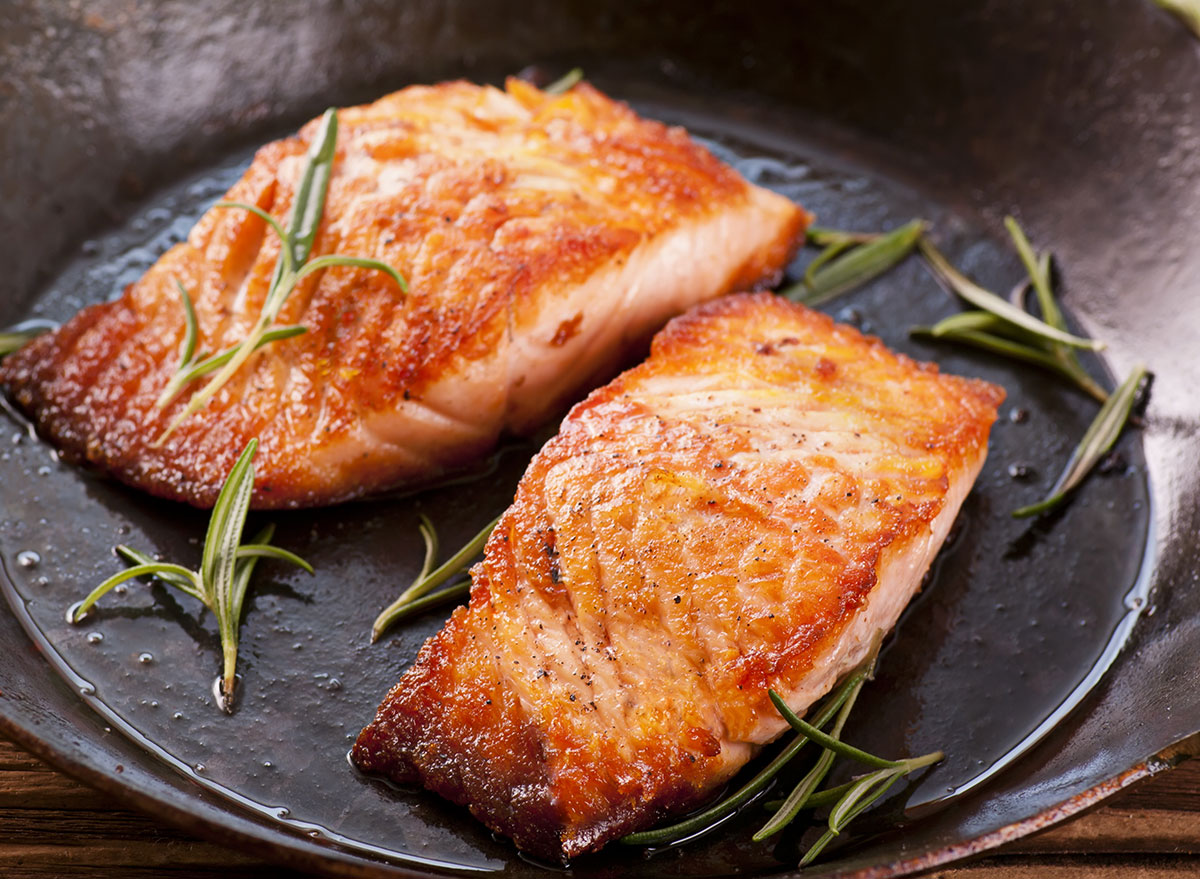
Here’s the fact that almost all experts agree on: eating either variety of salmon is better than not eating it.
“The benefits of regularly eating fish outweigh the risks,” says Morton Tavel, MD, author of Health Tips, Myths and Tricks: A Physician’s Advice. And, it turns out, farmed salmon even has a few unique benefits.
“Farmed salmon tends to have higher levels of omega-3 [fatty acids], as they are fed regularly and likely with supplementation as opposed to foraging and hunting for sustenance,” says Airey. “There is some evidence that omega-3’s play an important role in reducing inflammation and perhaps even reducing symptoms of depression. More studies are needed, but these results are promising.”
Along with salmon, here are 26 Best Omega-3 Foods to Fight Inflammation and Support Heart Health.
But your immune system could become compromised.
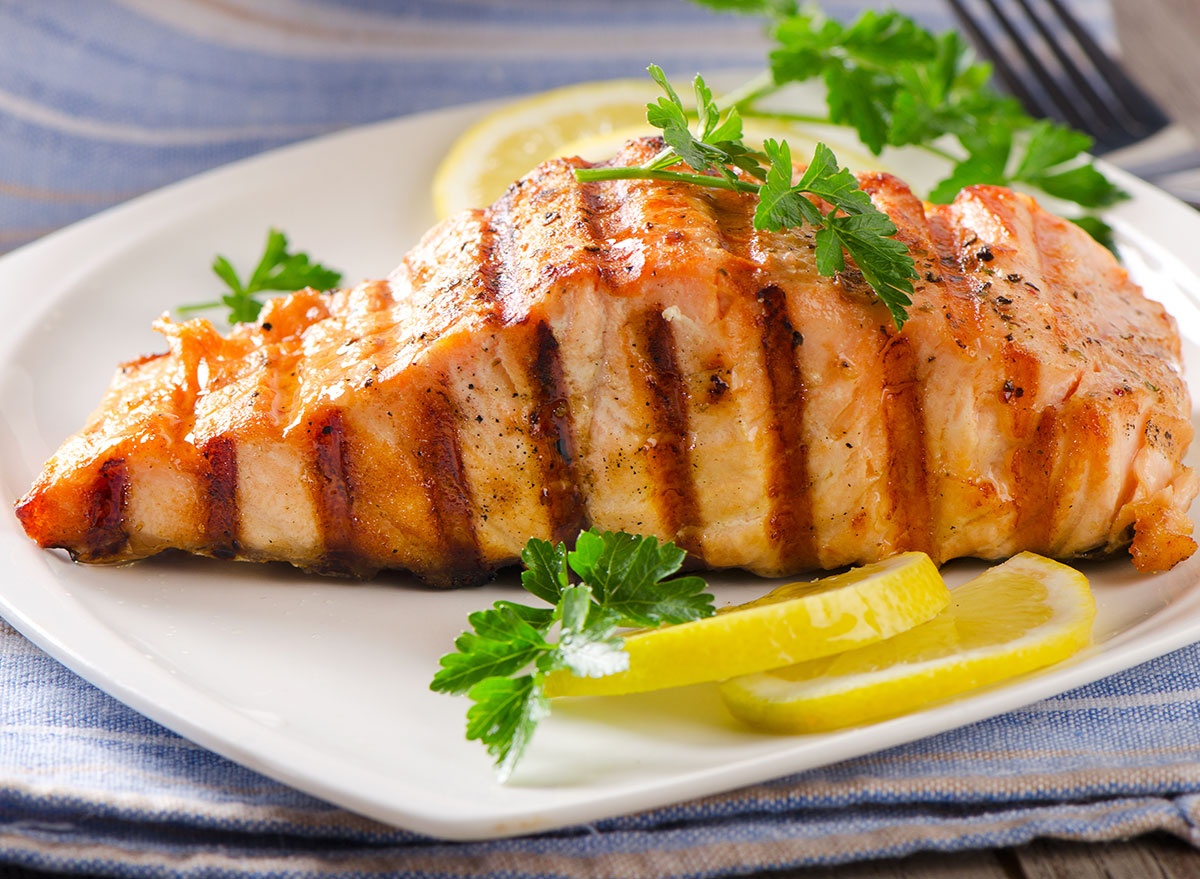
After living through a pandemic, immune system health is more paramount than it’s ever been before—but apparently not a good thing, for the farmed salmon industry.
“According to studies, the consumption of farmed salmon results in elevated exposure to dioxins and dioxin-like compounds that elevate your health risk,” explains Dr. Byakodi. “Dioxin has an immunosuppressive property that increases your chances of developing infections.”
Get even more healthy tips straight to your inbox by signing up for our newsletter!
You’re still getting some nutrients, but missing out on others.
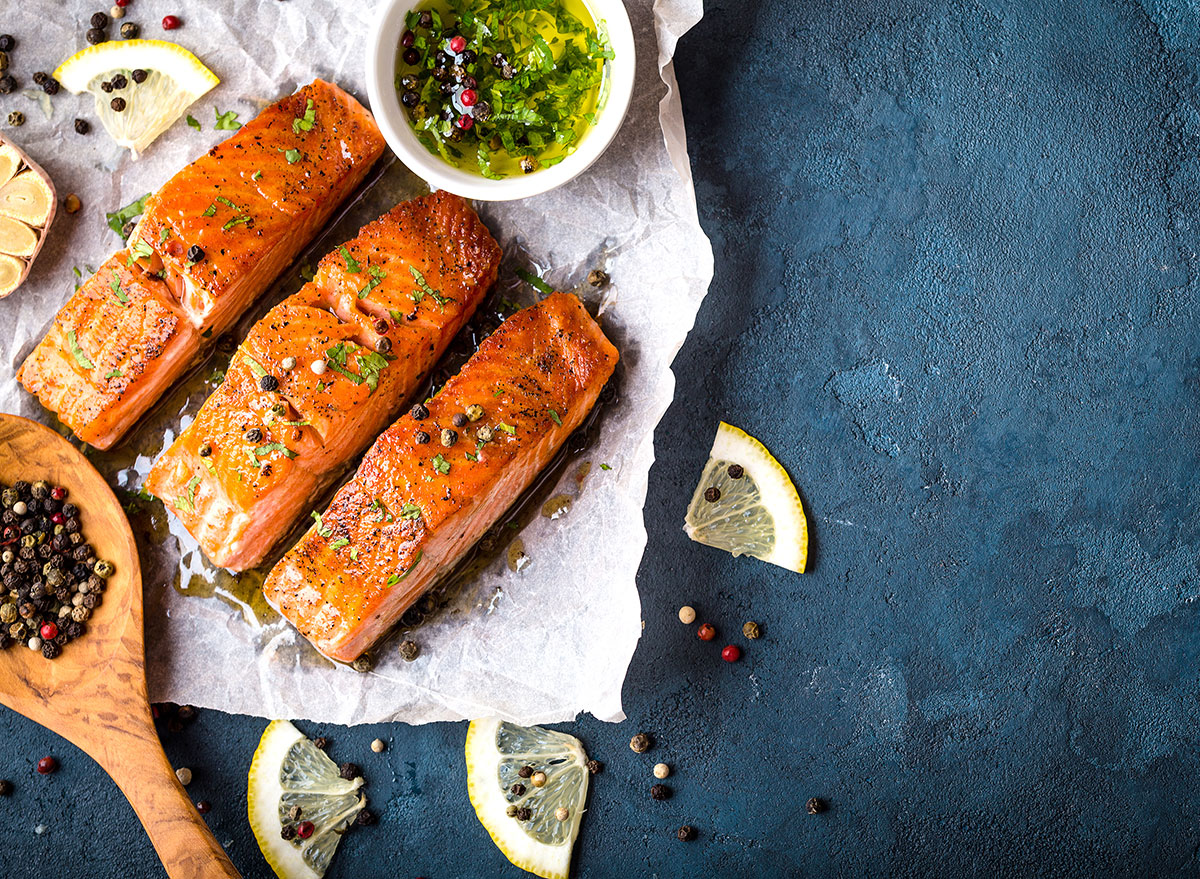
Salmon is known for nutrients: B vitamins, potassium, and high-quality protein can all be found in the fish. It also exists with other trendy foods like avocado and coconut oil in the “healthy fat” category.
“Healthy fats are essential for our bodies and minds, but not all fats are equal,” explains Shannon Henry, RD. “Wild salmon has a better ratio of good-to-bad fats than farmed salmon.”
Dr. Steve Hoody, CEO/Founder of Healthier2gether, elaborates: “Farmed salmon is high in Omega-6 saturated fat, which raises your cholesterol and creates inflammation.”
Here are 20 Common Fatty Foods That Won’t Make You Fat.
And you’re ingesting some things you’d probably rather not.
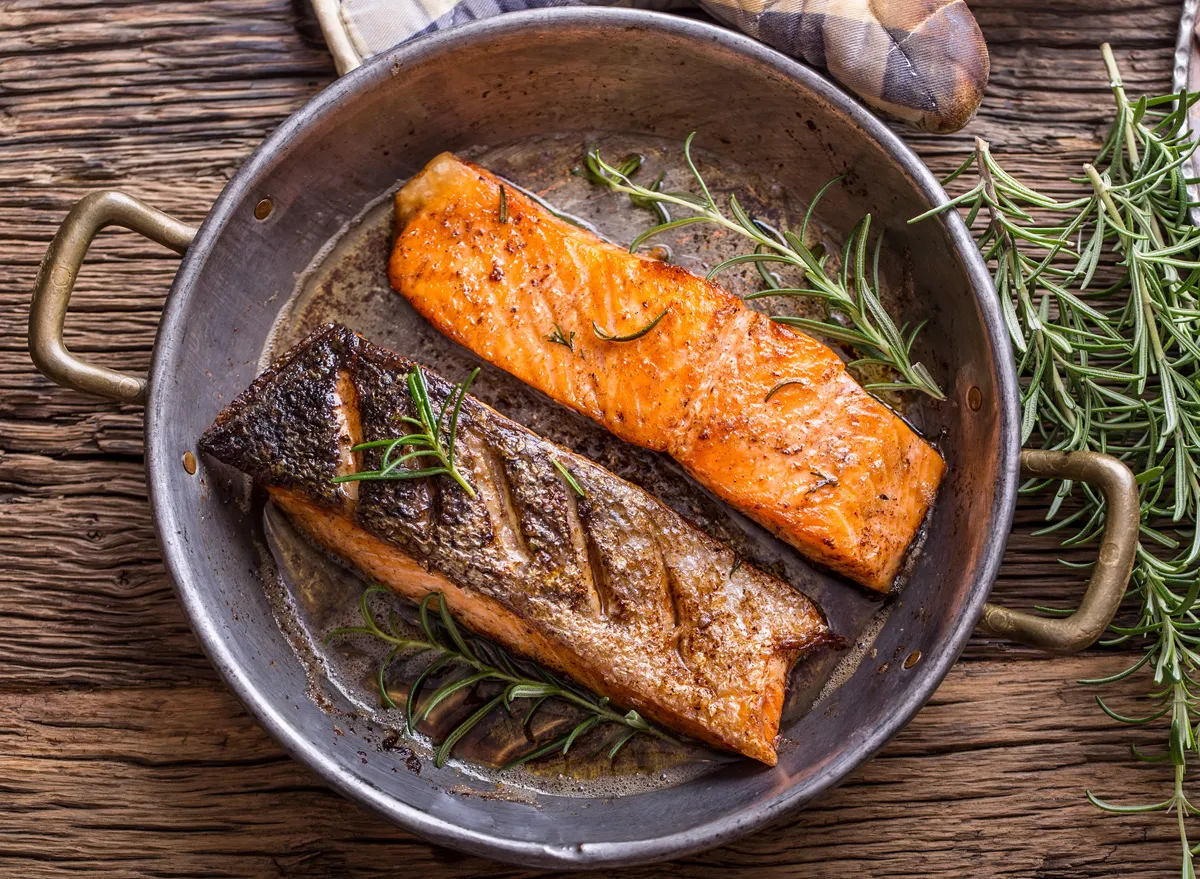
The issue with farmed salmon is less in where they’re raised, and more in the how.
“Farmed salmons are not given a natural diet,” says Reda Elmardi, certified nutritionist. “Their diet includes supplements that are made from petrochemicals.”
What are petrochemicals? They’re an additive that gives farmed salmon its pink color. Without it, they would be grey due to a lack of antioxidants in farm waters.
“When we consume farmed salmon that contains petrochemicals, these chemicals become a part of our tissues and cause damage to the human brain, nerves, and liver,” Elmardi says. “Petrochemicals also cause asthma, birth defects, skin irritation, and ulcer.”
“Farmed salmon has 10 times more chemical toxicity than wild salmon,” says Dr. Hoody. “This includes Mercury and PCBs, which in high levels can harm our brain and nervous system.” His fix? When you buy farmed salmon, simply remove the skin. Most of the toxic chemicals he references can be found there.
Here’s The Difference Between Farm-Raised and Wild-Caught Salmon.
You could increase your risk of developing cancer.
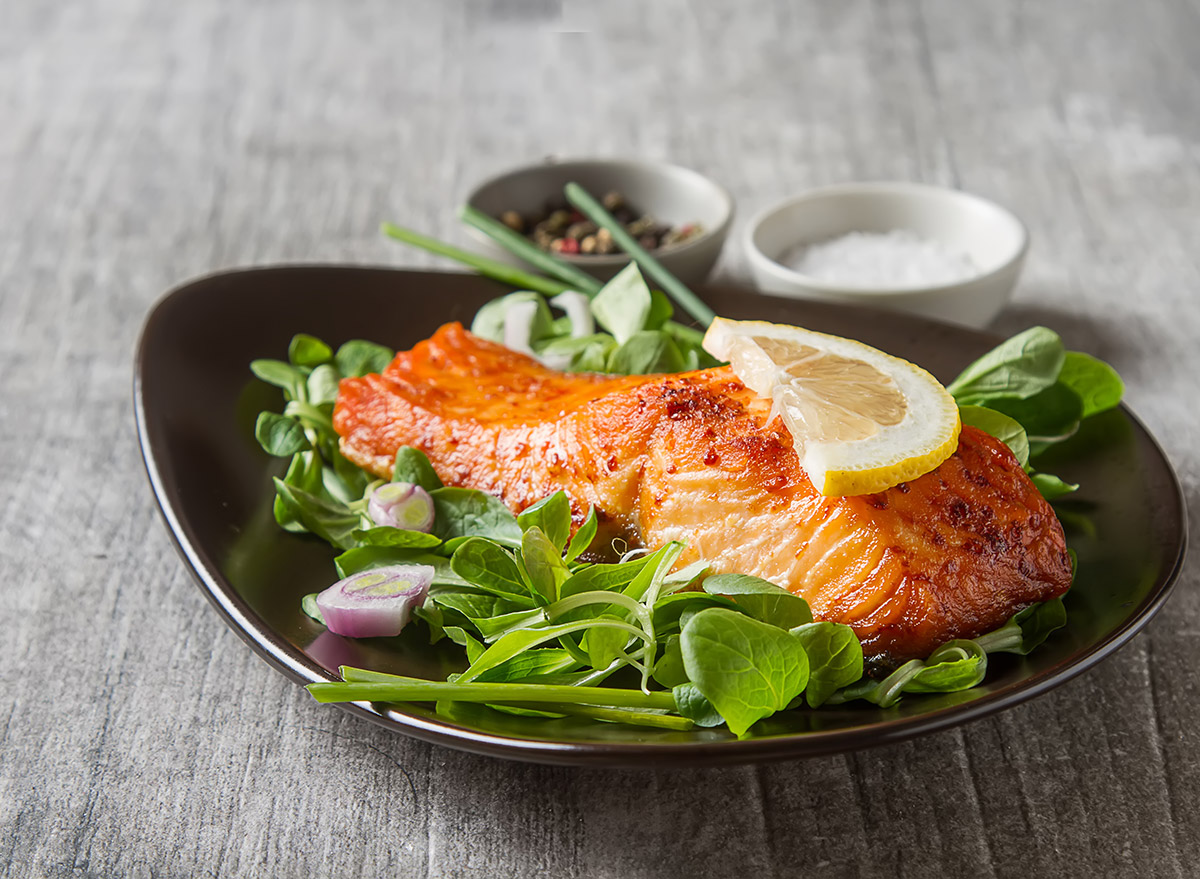
Not to be alarmist, but there are some human cancer risks associated with eating farmed salmon. According to Dr. Byakodi, these dangers come from the concentrations of PCBs, toxaphene, and dieldrin, which are much higher in farm-raised salmon than in wild Pacific salmon.
“Farmed salmon is contaminated because it is raised in crowded conditions like net pens and sea cages from which they cannot escape,” says Elmardi. “These conditions increase the level of contaminants in the farmed salmon. Polychlorinated biphenyls cause cancer in humans and several other dangerous diseases because they are not biodegradable.”
What about wild salmon in a can? Here are 9 Things You Can Make With a Can of Salmon.
